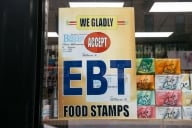You have /5 articles left.
Sign up for a free account or log in.
Baylor University has been seeking more national attention, but not this kind of attention.
After several days in which educators and admissions experts nationally lambasted its plan to pay accepted applicants to raise their SAT scores (and presumably the institution's ranking in U.S. News & World Report), Baylor is admitting a mistake.
Lori Fogleman, a spokeswoman, said in an interview Thursday night that the university "goofed" by offering the cash incentives. "We have heard the criticism," she said. "It just had the appearance of impropriety. It raised unnecessary questions."
High school students will still be permitted to take the SAT as many times as they want, she said, in efforts to improve their credentials. But she said Baylor would no longer offer any financial incentives to do so.
Baylor offered any admitted student a $300 book credit at the campus store just for taking the SAT again. Then, if a student's score went up by 50 points, which a university official characterized as going up “dramatically,” he or she would earn a scholarship of $1,000.
Further, for students who had missed the cutoff levels for various merit scholarships, if their new SAT score got them over the bar, they could have that money. Because Baylor adopted the program after a drop in its SAT average -- and amid a concerted effort to raise its U.S. News rankings -- the payments were widely criticized as an attempt to game the system. Critics said that Baylor was becoming the "poster child for SAT misuse," and faculty and students said that they were embarrassed by the initiative.
When Baylor was defending the program, it suggested that other colleges had similar efforts. While no other college came forward, it does turn out that other institutions are using little bonuses to get some of their numbers higher -- in this case the number of applicants. The Wall Street Journal's Law Blog reported Wednesday that a reader had received an e-mail from the law school of the University of Alabama at Tuscaloosa. The e-mail read in part:
"Admit it! You are an outstanding student. For a select number of students like you, The University of Alabama School of Law is offering some special incentives. But, don’t wait! ... For you, we’re making two special offers: 1. We’ll waive your application fee, and 2. We’ll present you with free iTunes® downloads in the amount of $20 if you apply!"
This led the Journal's blogger to "wonder about Alabama’s motives. Raise the number of applications? The number of rejections? Capitalize on what’s expected to be a big application year? We await a response from Claude Reeves Arrington, Alabama law’s associate dean of admissions."
While no response was posted, many readers questioned the dignity of going after students with iTunes and speculated that this was a ploy to improve the law school's ranking from U.S. News. While rankings watchdogs have fun critiquing the way colleges seek to improve their performance on many of the magazine's lists, law schools have been the site of many allegations of either trying to manipulate the rankings or taking them too seriously. But even Robert Morse, the magazine's rankings czar, said in an interview Thursday that he had never heard of a law school paying potential applicants to apply.
Morse said that, as is frequently the case, he wondered whether these sorts of incentives would really be enough to have a major impact on the rankings. It would take a "gigantic change in their acceptance rate" to do that, he said. However, as a matter of philosophy, he said that the magazine "disapproves of any educational policy designed solely to manipulate the ranking."
It turns out that Alabama has been offering the bonus for applying since 2006 and the law school defends the practice. Via e-mail, Aaron V. Latham, a spokesman, said: “As you know, higher ed institutions around the world are testing creative strategies to punch through the clutter and attract -- both nationally and internationally -- the most diverse, distinguished students possible to enroll in their programs. Since we began offering iTunes downloads to students in 2006, the feedback has been overwhelmingly positive. Offering downloads is unique because it puts a 21st century spin on that time-honored tradition of passing out T-shirts at graduate school fairs.”
Another law blog, meanwhile, is raising the possibility of "voter fraud" in the surveys of reputation that U.S. News uses for the law school rankings -- surveys that have the greatest weight of all factors in the magazine's methodology. The MoneyLaw blog notes that U.S. News says that the surveys go to law deans and a specified number of officials with other job titles, not to just anyone who works at a law school. The blog reports hearing from two law school employees who fit none of the criteria given by the magazine but nonetheless report receiving the forms to rank other law schools. No identifying details are provided.
Morse said that the magazine sends the survey only to those with the job titles it lists. However, he acknowledged that law deans are free to pass the survey on to others (just as many presidents do with the surveys for undergraduate colleges), so it is quite possible that some of the responses are coming from people who don't fit the job titles identified.








